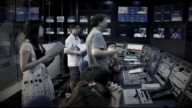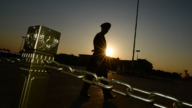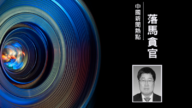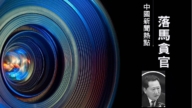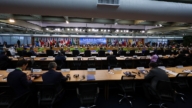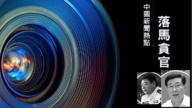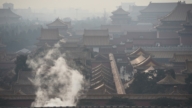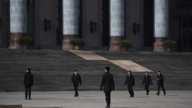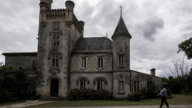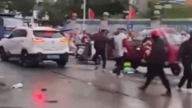【新唐人2012年12月18日訊】習近平一向被視為是一個韜光養晦,低調謹慎的官員,這也是他在中共內部派系鬥爭激烈的情況下,還能在十八大接棒的重要籌碼。不過他上臺後的初次南巡,卻讓外界看出了背後的謀劃,他究竟是不是改革者?他的改革又能走多遠?
習近平在上臺之後,連打了幾名貪官,之後迅速前往廣東視察經濟改革發展狀況。習近平這次南巡被外界視爲「不一般」,一是由於刻意低調,二是由於明顯效仿鄧小平。習近平去深圳看望母親時,還特意去向鄧小平銅像獻花。
台灣副研究員陳華升15號撰文分析,習近平的一連串政治動作有幾層意義。其中首要的是,「標舉鄧小平路綫」,用來回應未來可能來自胡錦濤或江澤民的政治壓力和挑戰。同時也向海內外展示,儘管江系人士佔了政治局常委大半席位,但他也不會在政治路綫上受制於上海幫江系勢力。
不過美國哥倫比亞大學政治學博士王軍濤認爲,習近平要完全擺脫江派控制,進行改革還是很困難。
王軍濤「 中國在5年內不會有甚麽太大的變化可能。如果要是有變局,只有在發生危機和突發事件,引發朝局動盪的時候,習近平他們通過政變的方式來控制局勢,把江澤民原來安排的格局給它邊緣化。然後另搞一個格局,這樣才可以有機會去解決問題。」
習近平在過去的政治生涯,都小心翼翼的隱藏自己的觀點,但上臺後不久開始大談改革、談人民、談腐敗和談復興。這種變化被外界視爲﹕他開始培植勢力圈——「習派」,來對抗「太子黨」、「團派」、和「江派」。
時事評論員劉淇昆:「 有可能出現『習派』。中共官場的傳統,是不是跟對人了,這個很重要。那麼現在習近平既然大權在握,那麼有人投靠他,有人要跟他,這些都是中共官場的潛規則了。」
在民主國家,人們因爲不同的政治理念而組成不同政黨,但中共內部的派系向來不是這樣。研究中國問題的自由撰稿人戴維科恩(David Cohen)之前在網路雜誌《外交者》(The Diplomat)發表分析文章說,中共一黨獨大,其中派系也跟思想無關,主要看的是「靠山」。
劉淇昆:「黨內出現不同的派別,是因為有不同的利益集團。無論是哪一派,他們都不是真正的憲政民主派,他們在維護中共一黨獨裁的統治方面,他們是一致的。所以今後中國的政治體制改革,寄託於他們當中的任何一派,都是靠不住的。」
1992年是中共的艱難時刻,經歷了89年「六四」學運的中國人對中共極爲失望,當時鄧小平壓住黨內保守派的意見,到南方巡視,用刺激經濟的方式又將中共的統治維持了幾年。但是鄧小平拒絕進行政治改革的惡果發展到今天,使得習近平想再次利用經濟改革作爲「強心針」也困難重重。
劉淇昆:「現在繼續發展經濟遇到巨大的障礙,就因為中共不搞政治改革。但是習近平在政治改革方面,他不會有任何作為。他倣傚鄧小平,那就是說,在經濟方面改革開放,在政治方面堅持一黨獨裁。六四大屠殺不是鄧小平製造的嗎?不必對習近平在政治改革方面抱甚麼希望,希望越高,會失望越大的。」
習近平在南下視察的時候刻意低調,以區別以往的高官。同時,被視爲下屆總理人選的李克強在下基層的時候,也以方便麵充飢。西方媒體認爲,習、李兩人效仿西方領導人的親民和樸實,努力扭轉形象。但不能忘記,溫家寶同樣以改革派和親民的形象著稱,但在任內並沒有推動真正的改革。因此對於習、李兩人,任何過早或過於樂觀的結論都是不成熟的。
採訪/常春 編輯/尚燕 後製/蕭宇
Interpretation of Xi Jinping’s Southern Tour
Before taking office, Xi Jinping, had long been viewed as
a low profile official in the Chinese Communist Party (CCP).
This feature helped him to take over the
top power during CCP’s fierce infighting.
However, a deeper meaning behind his first
southern inspection tour, has been interpreted.
Is Xi Jinping a person who will launch political reform
in China, and if yes, how far will his reform go?
Xi Jinping has axed several corrupt officials
since he took the CCP’s top seat.
Later, Xi went to Guangdong
to inspect local economic reform.
Xi’s southern tour has been widely viewed
as “unusual", as it was intentionally low-key.
It was also seen as an emulation of Deng Xiaoping.
Reportedly, Xi specifically presented a bouquet
to a bronze statue of Deng Xiaoping, when visiting his mother in Shenzhen.
On November 15, Chen Huasheng, a research
associate at the National Policy Foundation in Taiwan, commented in an article.
He interpreted that Xi Jinping’s round
of political actions has many layers of meaning.
The foremost is that Xi “advocates Deng Xiaoping’s line"
to respond potential political pressures and challenges from Hu Jintao or Jiang Zemin.
Further, Xi demonstrates to the world that although
Jiang’s close allies have taken over half of the seats
on CCP Politburo Standing Committee, he will not
submit to Jiang’s forces for taking a political route.
Dr Wang Juntao, political science expert from Columbia
University, says that it is still very hard for Xi Jinping
to completely shake off control from Jiang’s forces.
It is also hard for him to implement reform.
Dr. Wang Juntao: “China won’t see any
major change in the next five years, I think.
Political change may only occur in the event
of a crisis outbreak, or an emergency event.
Then in order to control the situation, Xi Jinping
and his team may resort to a coup.
Xi will marginalize Jiang’s pre-set arrangements
and initiate his own, in order to solve the problem."
Over his past political career, Xi Jinping
has carefully concealed his point of view.
Yet, shortly after taking office, Xi openly talked about
reform, the people, corruption and about nation revival.
Xi’s change has been widely considered that he is fostering
his own forces, Xi’s faction, to confront “the Princelings”,
“the Communist Youth League faction”, and Jiang’s forces.
Critic Liu Qikun: “The 『Xi faction’ may appear.
In CCP officialdom, it’s important to take
the right stand. Now Xi Jinping is in power.
Someone could seek shelter under him or follow him,
and these are hidden rules in the CCP’s officialdom.”
In a democratic country, people form different political
parties based on different political ideologies.
The case for the CCP’s factions is different, however.
David Cohen comments on this point
in his article published on thediplomat.com.
He said that, “Factions in Chinese politics
have little connection with ideology.
Rather, they are primarily patron-client networks.”
Liu Qikun: “The CCP’s different interest
groups gave birth to different factions.
None of them is real pro-constitutional democracy.
They all safeguard CCP one-party dictatorship.
So it’s unreliable to pin one’s hope on any one of them."
The CCP regime underwent difficulties in 1992.
The regime’s bloody crackdown on the
student pro-democracy movement of 1989 had smashed Chinese people’s trust in it.
In 1992, Deng Xiaoping made a southern inspection tour.
By means of economic stimulation,
Deng sustained the CCP’s rule.
China has so far witnessed the aftermath
of Deng’s refusal to launch political reform.
And Xi Jinping tried to once again take economic reform
as a booster for CCP’s ruling, which will prove difficult.
Liu Qikun: “The CCP now faces huge
obstacles in driving China’s economy.
This is just because it hasn’t implemented political reform.
I don’t expect Xi Jinping to be more active on political reform.
His emulation of Deng Xiaoping has indicated that he will
make economic reforms, but uphold the CCP dictatorship.
Wasn’t it Deng Xiaoping who created
the “June 4 Tiananmen massacre” in 1989?
Don’t pin any hope on Xi Jinping for political reform.
The bigger the expectations, the bigger the disappointment.”
Xi Jinping intentionally kept a low profile in his southern tour,
which differentiated himself from other top CCP officials.
Meanwhile, the CCP’s premier-to-be Li Keqiang also reportedly
ate instant noodles during his grassroots inspection tour.
Western media reviewed that both Xi and Li
emulated Western leaders to set up a new leadership image of being “close to the people."
Wen Jiabao was also known as a CCP reformist figure,
but was unable to truly advance reform during his tenure.
Therefore, any early or overly optimistic conclusion
on Xi and Li is premature, according to the news report.


